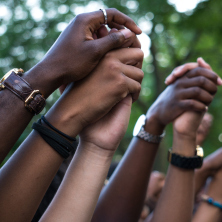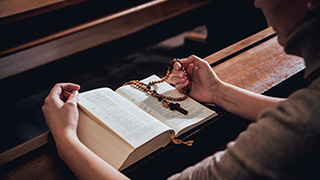Juneteenth — Reflection and Celebration
Thursday, June 18, 2020
"The people of Texas are informed that, in accordance with a proclamation from the Executive of the United States, all slaves are free." General Order No. 3

Celebrations honoring June 19 began the next year and expanded as African Americans moved from Texas to other parts of the country. Rep. Al Edwards, a civil rights activist and state legislator, sponsored a bill in Texas in 1979 to designate Juneteenth as an official holiday, the first U.S. state to do so. Today, 47 states and the District of Columbia recognize Juneteenth (also known as Freedom Day or Emancipation Day) as a state holiday or observance.
New Jersey officially recognized Juneteenth in 2004, passing a bill signifying the importance of the day and its larger meaning: “The celebration of Juneteenth symbolizes freedom, celebrates the abolition of slavery, and reminds all Americans of the significant contributions African Americans have made to our society; Juneteenth serves as a reminder to all Americans of the triumph of the human spirit over the cruelty of slavery, honors those African Americans who survived the inhumane institution of bondage, and demonstrates pride in their legacy of resistance and perseverance.”
We encourage all in the Seton Hall community to mark the Juneteenth holiday by learning more about the day, why it is such an important part of our history, and what each of us can do to eliminate the pernicious effects of racism while helping to fulfill the hope that was promised on that day in 1865.
For more information about the holiday, please visit the site developed by Chelsea Barrett, librarian, and Elizabeth Leonard, assistant dean for information technology and collection services, in the University Libraries.
As part of the University's ongoing Diversity, Equity and Inclusion initiatives, we are holding several events in the coming weeks:
Stop Killing our Patients: Outcry for Justice
Friday, June 19 from 1:30 p.m. - 2:30 p.m. EDT
An expert panel speaks about racism during the pandemic, what has led to the structural
injustice that places America in not one, but two, public health crises, and what
people can do about it.
Faith and Racial Injustice
Wednesday, July 1 at 4 p.m. EDT
Our student organizations are hosting an interfaith event, Faith and Racial Injustice,
to create space for those who would like to come together in solidarity through prayer
and creative expression.
Please consult the University Calendar for more information.
Categories: Arts and Culture, Campus Life, Education, Nation and World





